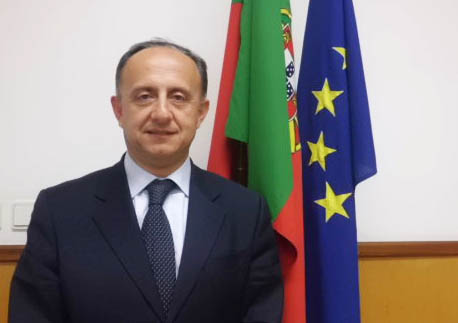 The chairman of the Algarve Regional Coordination and Development Commission (CCDRA) David Santos believes that the Algarve will not lose access to structural funds entirely and that it could benefit from a new phase of transition from the neediest region to the wealthiest group of regions in the European Union (EU).
The chairman of the Algarve Regional Coordination and Development Commission (CCDRA) David Santos believes that the Algarve will not lose access to structural funds entirely and that it could benefit from a new phase of transition from the neediest region to the wealthiest group of regions in the European Union (EU).
In this community framework, which ends in 2013, the Algarve is already in the so-called Phasing Out process, but a model that allows some of the European regions that are at this stage to prolong the transition for another six years is already being negotiated.
David Santos was the guest of last week's radio program «Impressions», organized jointly by Sul Informação and by Rádio Universitária do Algarve RUA FM. An interview which served to make a projection of what the future of the region will be, as far as access to community funds is concerned.
At a time of crisis, the Algarve has been losing wealth, the same one that dictated that, in 2007, it was part of the group of regions whose per capita income exceeded 75 percent of the EU average. But the loss is unlikely to put the region back among the poorest in the EU.
“The negative evolution that we have had should not be enough to return to the Convergence Objective. But there is already a current in Europe, which is undergoing great consolidation, for the creation of the so-called transition regions. We could stay somewhere in between. About 50 regions in Europe have already been identified in the same situation as the Algarve and this gives great strength», he revealed.
In 2007, similarly to what happened, for example, with Lisbon and Vale do Tejo, the Algarve entered the Phasing Out of the Convergence Objective [group of the poorest regions], to prepare to enter the Competitiveness Objective. «To give you an idea, in the current framework of support, the Algarve received 175 million, which is a fifth of what the Alentejo region received», he illustrated.
This new opportunity to make the transition to the rich regions of Europe, although it is expected that it will take a different form from the Phasing Out, comes at a time when the European Union is implementing new financing models and cutting back on non-repayable contributions.
“I believe that, at this moment, it can already be said that, in the next Framework of Support, the lost funds should end”, considered David Santos. On the other hand, repayable support models, without interest or with lower counterparts than in the financial market, should be encouraged, "and in exceptional cases, on merit, part of these loans may not be returned".
Priorities between 2014 and 2020 will go a long way to the Economy of the Sea
The next Algarve Operational Program will strongly invest in boosting the Maritime Economy sector and in the Algarve CCDR there are already many ideas about what the investment priorities are. Part of these proposals arose as a result of the Forum of the Sea, an initiative that served, precisely, to refine economic strategies around the sea.
“We understand that there must be a big investment in aquaculture, namely offshore. On the other hand, we should invest in the consolidation of the Port of Cruises in Portimão, in the revitalization of the Port of Faro and in the navigability of the River Arade and the River Guadiana», said David Santos.
The intervention in the river that separates Portugal from Spain should be faster, believes the president of the CCDRA, since there is interest in moving forward with the project on the other side of the border. And this is an area that can be linked to renewable energies, since, he believes, «it would be very interesting to associate the navigability of rivers with electric boats».
Shipbuilding and ship repair are other fields that can be encouraged, he added. «You can also install Ports of Recreation along the entire coast and in the Ria Formosa and organize the estuary accordingly», said David Santos.
Ideas that require the involvement of private parties, something that David Santos believes will not be a problem and that will pass through the newly created association Maralgarve, which brings together public and private entities.


















Comments